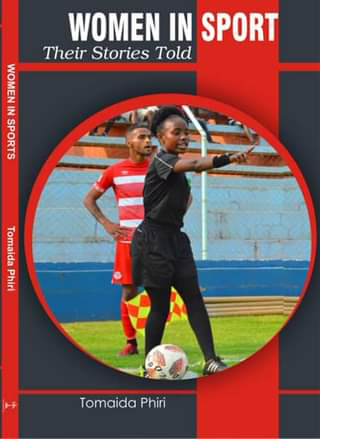Some years ago, the Faculty of Kinesiology and Physical Education (then known as the Faculty of Physical Education and Health) enjoyed an exchange agreement with the University of Zambia (UNZA) focused on strengthening research, with a special emphasis on physical education as a form of preventive education against HIV and AIDS. There were a number of exchanges both ways, with Faculty Professors Bruce Kidd and Scott Thomas going to UNZA and several Zambian teachers coming to FPEH to study for a year.

One of those students was Tomaida Phiri, who spent a year at the Faculty between 2008 and 2009. Phiri recently published a book called Women in Sport: Their stories told, one of few books focusing on women in sports, not only in Zambia, but in Africa more broadly.
“The courses I pursued at FPEH helped me to look at sports in a different manner,” said Phiri via email from Zambia, where she currently works as a lecturer at the Kwame Nkrumah University.
Phiri took eight courses at FPEH that covered topics ranging from the psychology of physical activity and motor learning to physical activity and social inequality, and international development through sport.
“I gravitated towards the sociology of sport, physical activity and social inequalities and international development through sport,” said Phiri.
Unequal opportunities, the lack of user-friendly facilities and women in leadership positions were some of the themes discussed in her courses with Bruce Kidd and Peter Donnelly, both professors emeriti at the Faculty, and Associate Professor Simon Darnell. Phiri explores them further in her book.
“The knowledge that women and girls are discriminated against in sports made me want to sensitize the public, the (Zambian) government and school managers about these disparities,” said Phiri. “The media in Zambia has not helped to make women in sports as visible as men; They seldom televise or even write about female athletes, who could act as role models for other girls and women.”
While Phiri acknowledges the Zambian Ministry of Education mounted a number of projects to educate girls, she says they have not done much in terms of educating them about careers found in sports. So, she gave voice to Zambian sportswomen in her book to help educate girls and women about those opportunities and experiences.
“The rich course content at FPEH helped me enrich my education and, in turn, the Zambian physical education and health university curriculum,” said Phiri.
A good example of the long fuse of international collaboration, according to Kidd.
